Foundation Apprentices at the IGC
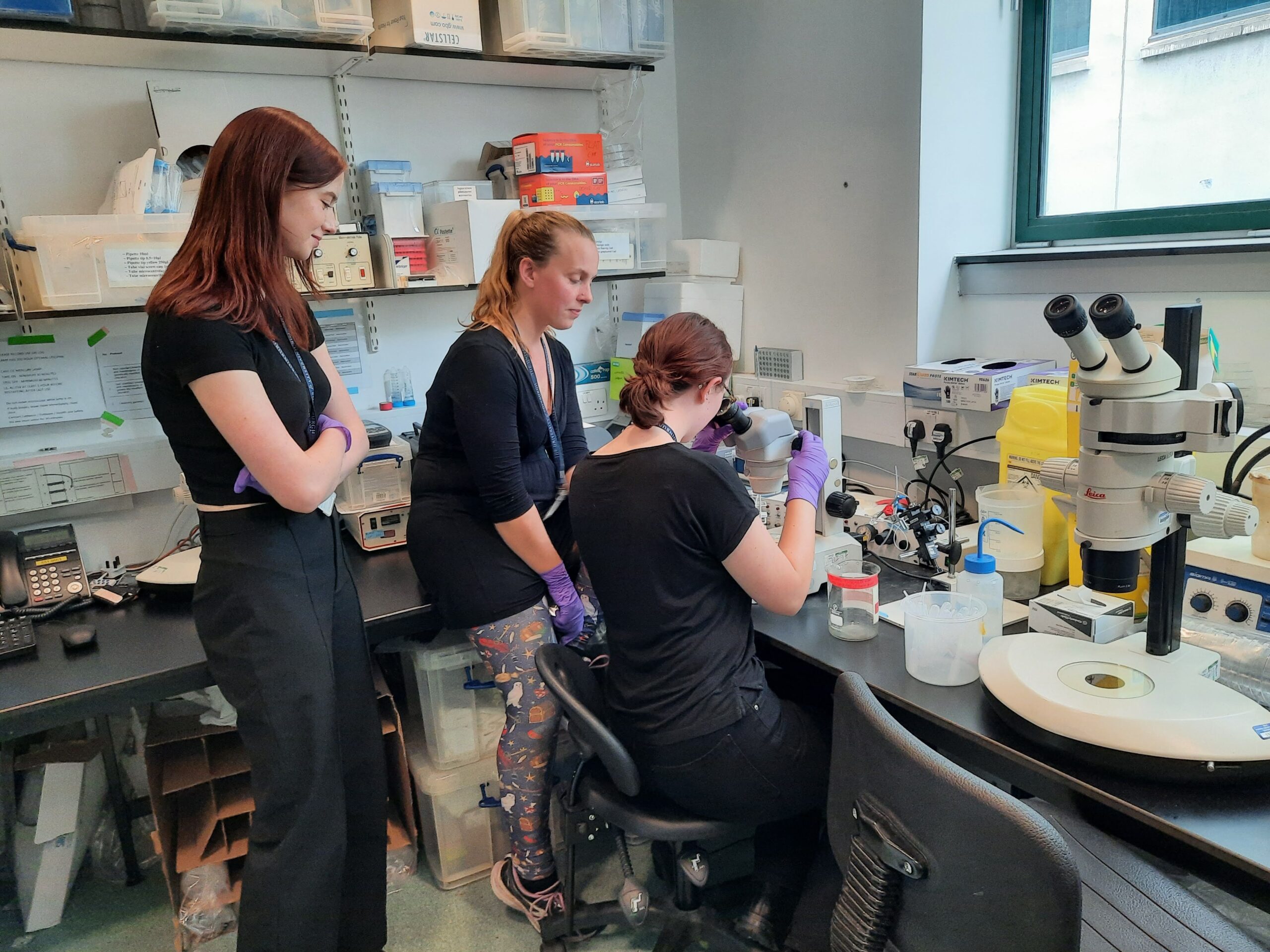
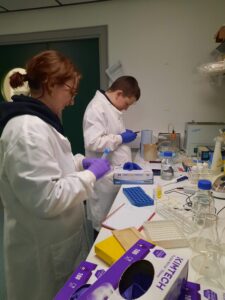 Foundation Apprenticeships are a work-based learning opportunity, for senior phase secondary school pupils. It helps us build our skills for work and gives us a recognized qualification without a final exam at the end.
Foundation Apprenticeships are a work-based learning opportunity, for senior phase secondary school pupils. It helps us build our skills for work and gives us a recognized qualification without a final exam at the end.
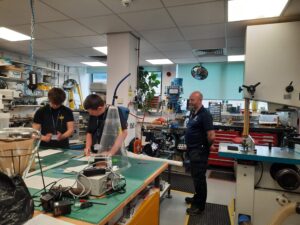
Lasting 1 to 2 years, we began our foundation apprenticeship in S5 or S6. The pupils who opt in to do both years spent year one performing various experiments at a selected school. In the second year we are sent on placement to Pharma companies and University research centres including the IGC. We are completing the apprenticeship alongside our school highers and advanced highers.
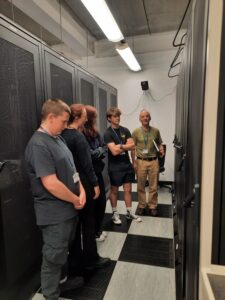
We have been split up into different departments in the IGC to get an overview of how everything works together, we really enjoyed seeing the research in action and the enthusiasm and expertise of the technical staff who run these facilities day to day. The placement has made us realize that there are lots of opportunities for careers in scientific research and technicians are a very valued resource!
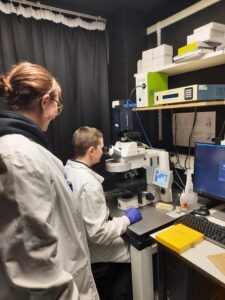
Holly Shotton
I have been placed in the imaging facility where I helped build and test the new microscope for live imaging. I am really enjoying my time in imaging as I am learning about how microscopes function. I have taken before and after images for Calvados so we are able to compare to ensure that the camera/ microscope has not changed. This means Researchers will be able to carry on with their research without making any changes to their methods. I’ve also been involved in a project where I refurbished an old microscope to send to the Microscopes for Malaria project. In this project old research microscopes are sent to central and west Africa for diagnostic use in hospitals.
I have also been working on the reagents shop where I have been splitting up solutions into aliquots for different departments to try out before they buy the full thing.
I hope to go on to university and study physiotherapy.
Lauren Dickson
I spent the majority of my time at the IGC in the Flow Cytometry department with Lizzie and Michael, along with others who have been very kind and helpful during our placement here. In Flow Cytometry we have been working towards an activity to use in our end of year assessment, since October we have been using the CytoflexS to analyse polystyrene beads and the fluorescents within. We have learnt about which wavelengths and channels suit best for each colour of fluorescence and how these machines work. Our end of year assessment included running and testing unknown beads and identifying which fluorescence is present, the whole procedure included running the startup and QC program, testing the beads, reading the graphs created from this and then performing the cleaning and shut down procedure. On top of being in Flow, I have spent a few weeks in the Zebrafish Department. Here I created solutions and learned about how the water system works in each room, as well as learning the importance of keeping each fish room equipment separated from the others and the problems that this could cause. I spent time calibrating and checking each room every week and learning how to mate the fish and collect their eggs. Everybody in the IGC facility has been very helpful and accommodating to us during our time here and I’m glad that I was chosen to have this experience.
After my final year of high school, I hope to study Forensic Anthropology at university and think that my apprenticeship here has greatly benefited me towards that.
Euan Gillespie
I was placed in the scientific workshop department. During this time, I have worked on many live projects, such as changing a water pump in the zebrafish facility and inspecting a circuit board on an incubator to diagnose a problem with the gas levels. In the time I have been in the workshop I have learned about principles of engineering, circuit boards and how to solder them together. My final project in the workshop was to build a 12 volt power supply.
As well as the workshop, I have also been in the imaging facility learning how to operate the microscopes. Along with this, I have been assisting in setting up the reagent shop, a way for scientists to get a ready-to-use sample of a cell tracker or another specialist chemical. Finally, I set up a class 2 lab, which involved working with the workshop to create a Perspex holder for the eyewash station, making up ethanol and Distel solutions and setting up the necessary disposal methods.
After school, I hope to move onto an apprenticeship, having applied for a graduate apprenticeship in Design and Manufacture Engineering.




It’s truly inspiring to delve into the immersive experiences Holly, Lauren, and Euan have encountered through their Foundation Apprenticeships. Their narratives vividly illustrate the transformative power of hands-on learning, akin to the captivating insights found within the pages of medical books.
Holly’s journey in the imaging facility, from aiding crucial projects like Calvados to contributing to Microscopes for Malaria, mirrors the depth and impact of medical research chronicled in textbooks. Lauren’s immersion in Flow Cytometry and Zebrafish Department reflects the breadth of knowledge and practical skills reminiscent of the comprehensive content found in medical literature. And Euan’s diverse projects, spanning engineering principles to lab setup, echo the interdisciplinary approach celebrated in esteemed medical textbooks.
Through their experiences, Holly, Lauren, and Euan exemplify the invaluable knowledge and expertise cultivated through immersive learning—much like the wealth of information awaiting discovery within the pages of medical books. As they embark on their future endeavors, may their stories serve as a testament to the profound impact of experiential learning and the enduring value of medical literature in shaping aspiring healthcare professionals.